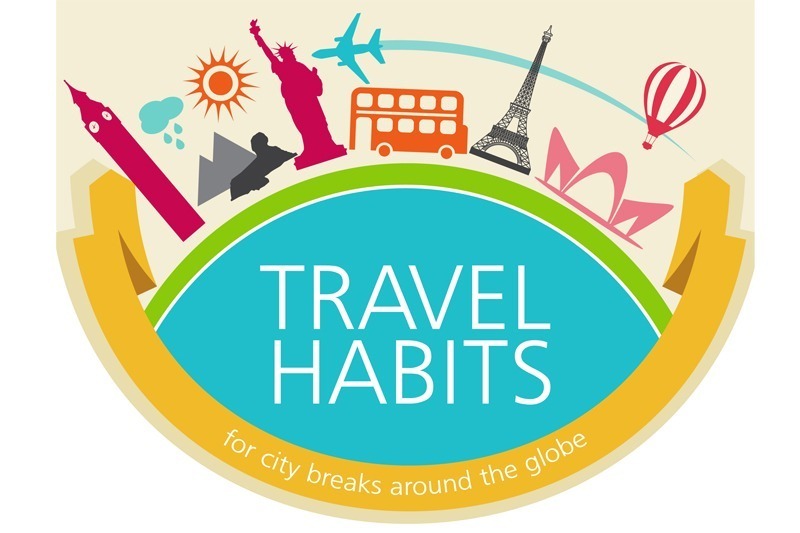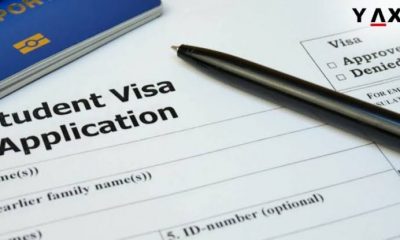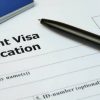Home
TRAVEL TIPS: 6 habits of highly experienced travellers

I enjoy travel tremendously, but sometimes I meet people who seem turned off by it after having a few bad experiences on the road…LOL. It seems that inexperienced travelers tend to make common “rookie mistakes” that frequent travellers like me know how to avoid simply because no one ever warned them about these things in the first place.
In the spirit of helping every new traveller to have a great trip, I thought it would be nice share a few healthy habits that beginners can easily incorporate into their travel routines.
1. Checking-in Online 24 Hours Before Your Flight
I have heard lots of travel horror stories from people who missed their flight or got bumped (involuntarily), and they all begin like this, “When I got to the airport, I went to check in and…” But experienced travellers already know that waiting to check in at the airport can be a very big mistake.
Think of the airplane as a very large game of musical chairs. The music stops at the cut-off time for checking in, and after that, your seat is likely to be gone since airlines tend to overbook most flights. The cut-off time varies by airline and airport, even by destination, but is typically 45 minutes or an hour before the flight is scheduled to leave. And even when you arrive at the airport with what you think is plenty of time to checkin, you might find the airline’s counters understaffed or their agents overwhelmed, preventing you from doing so on-time.
As every child knows, the key to playing musical chairs is to find a seat as quickly as possible, and not to wait until the last second. Thankfully, you can always win at this game by making sure you always check in online 24 hours before your flight’s scheduled departure time. Doing so will not just prevent you from being involuntarily bumped, but it also has other advantages — you’ll have a better chance at better seats, could be offered a paid upgrade or be offered compensation for voluntarily choosing another flight. And most importantly, if you can’t check in for any reason, you’ll still have plenty of time to try to solve the problem before you get to the airport.
2. Confirming Everything After You Book
After making most purchases online, we simply forget about them and wait for our stuff to arrive. But with airline tickets and other travel reservations, this complacency can really cost you. After booking any airline ticket, experienced travelers will verify their confirmation number and their ticket number to ensure that the flight was actually ticketed and not just “reserved.” And since you can buy a ticket from one airline for travel on another, you’ll need to use these numbers to confirm your flights and select seat assignments separately with each airline that’s operating a flight on your itinerary. It’s also a good idea to login and double-check your reservations every month or two, so just in case a flight has changed, you’ll have plenty of time to work with the airline to figure out an alternative.
3. Boarding as Early as Possible
Another habit that seems to make my travels much smoother is to board as soon as my group is called. Doing so helps to make sure that there’s a place in the overhead bin for my carry-on bag, and that it’s close to my seat. Airlines can also give away your seat if you don’t board the plane by the cut-off time — typically 15-20 minutes before departure — and I’ve heard plenty of stories of gate agents giving away passenger’s seats before that deadline, so you should never take the chance and try to cut it that close.
4. Taking Control During Irregular Operations
Some of the worst travel nightmares that I have heard of come from inexperienced travellers who are treated poorly after a flight is delayed or cancelled. They speak of waiting in long lines, being presented with poor alternatives and then being forced to spend the night in the airport. Sadly, experienced travellers know that you can never count on airline staff when you need them the most. At these times, they are often overwhelmed and seem more concerned with getting you to go away then they are with getting you to your destination.
In most situations, you will get the fastest and best help from staff in the airport lounge, and it could be worth paying a fee to enter if the alternative is to wait in an extremely long line or having to deal with excessive waits over the phone. When there is no airline lounge available, I tend to take an “all of the above” strategy when it comes to being rebooked. This means making a call to the airline first, and waiting in line at the customer service desk while you’re on hold or, ideally, waiting for a call back. At the same time, you can be researching alternative flights or reaching out to an airline’s customer service account via social media on your smartphone so you can pro-actively suggest the best itinerary for your needs once you finally reach a representative. Another strategy is to skip customer service altogether, go straight to the gate of the next flight out and see if the agents working that flight can accommodate you. Worst case scenario, reserve a hotel room (before they’re all gone) and just try to get out again the next day.
5. Booking Direct Whenever You Can
It can be super-easy to book a trip through an online travel agency, and some websites, like Travelstart…etc, even offer rewards programmes to do so. Yet when you need to change or cancel a reservation, or there’s a problem, you’ll often find the travel provider and the online travel agency pointing fingers at each other. And when booking a hotel through a third party, you may end up getting a less desirable room or not qualifying for rewards points or stay credits toward elite status by getting involved in its separate loyalty program. Always book directly through the hotel whenever you can to avoid the drama of a third-party mixup.
6. Only Checking a Bag That You Can Afford to Lose
Another habit that experienced travellers learn — often the hard way — is to pack your checked bags as if you’ll never see them again. All too often, I hear about people who’ve had their checked bags go missing protest how crucial it is that their stuff is returned to them because it contains their keys, medication, toiletries or important electronics.
It may be years until your bag is lost, but after it happens to you the first time, you’ll start to pack your essentials only in your carry-on and be fully prepared to go about your business trip or vacation in the absence of your checked bag, replacing clothing as you go.






















Recent Comments